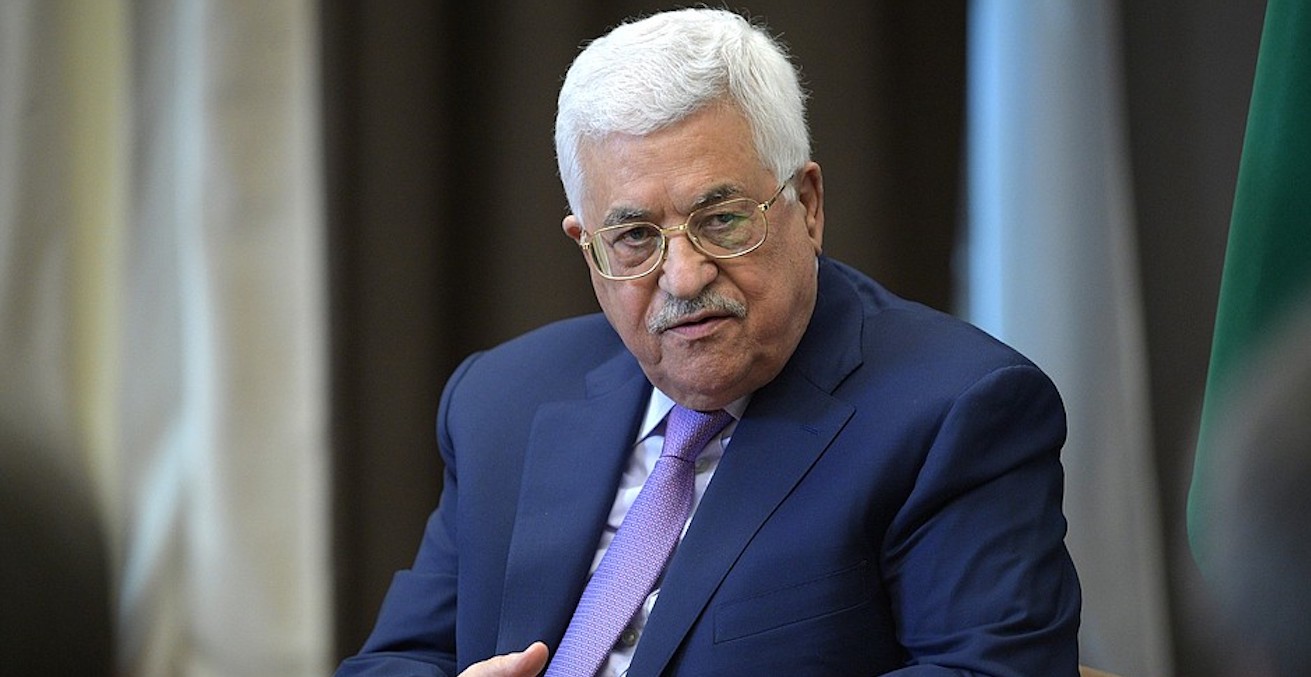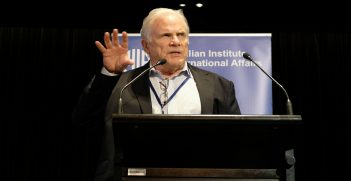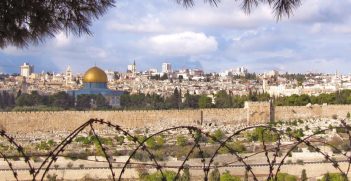The Dire State of the Palestinian Movement

Despite Trump’s decision to relocate the US embassy and his unfavourable peace plan, Palestinian factions and the Arab world have failed to respond with a unified, meaningful strategy. What explains this?
Despite President Trump’s highly controversial decision to relocate the US embassy from Tel Aviv to Jerusalem and efforts to impose a peace plan unfavourable to Palestinian interests, Palestinian factions and the rest of the Arab world have failed to respond with any semblance of a unified, meaningful strategy.
The last 18 months have not been kind to the Palestinian cause. As 2017 wore on, rumours emerged that the Trump Administration’s Israeli-Palestinian peace plan — led by Trump’s son-in-law Jared Kushner — will fall well short of Palestinians’ historic demands for a fully-fledged state based on the 1967 ceasefire lines, with a capital in East Jerusalem. In December, Trump delivered his coup de grâce by pledging to relocate the US embassy to Jerusalem, which was ultimately achieved in May.
In response, the main Palestinian factions Fatah and Hamas have offered little beyond condemnatory rhetoric. The response of the Palestinians’ so-called allies in the Arab world has also been noticeably muted. To understand this situation, it is necessary to examine the internal state of Palestinian and the broader politics of the region.
Divided, disconnected and shackled
Palestinian politics remains divided, both physically and ideologically, between Hamas in the Gaza Strip and the Fatah-dominated Palestinian Authority in the West Bank. It was hoped that the events of 2017 would provide an added impetus for fresh efforts — one of many since Fatah was expelled from Gaza in 2007 — to reconcile the two rival factions and implement a united response to recent developments.
Yet both factions were unable to overcome their differences and efforts to form a unity government have floundered. The latest efforts at reconciliation seem to have stalled after Palestinian Authority President Mahmoud Abbas accused Hamas of failing to hand over full control of governance to the Authority, while also demanding that Hamas disarm: a red line for an organisation which styles itself as a resistance movement.
The disunity of the Palestinian factions is not the only factor precluding any semblance of a meaningful response to Trump’s policies. For obvious reasons, Hamas fears another war with Israel and is more focused on retaining its hold on power by improving living conditions in the Gaza Strip, rather than seriously confronting Israel. To this end, Hamas has supported and increasingly taken control of the ‘Great March of Return’ protests, officially advocating for the right of Palestinian refugees and their descendants to return to Israel. More than 100 mostly-unarmed demonstrators have been killed in the protests, which aim to pressure Egypt and Israel into ending the dual blockade imposed on Gaza. Although the Jerusalem embassy move and Trump’s peace plan have added fuel to the fire, they are not necessarily the main causes of disunity.
Over in Ramallah, the Palestinian Authority also finds itself in a weak position. Under peace deals which eventuated as part of the Oslo Process, Israel is responsible for collecting tax revenue on behalf of the Palestinian Authority. The West Bank economy is largely dependent on Israel, while the Palestinian Authority is reliant on foreign (particularly American) aid for much of its revenue.
These structural factors have made it difficult to instigate resistance options, such as suspending security cooperation with Israel or embracing the Boycott, Divestment and Sanctions movement, without fear of Israeli and US retaliation. Abbas is also notoriously unpopular and fears the instigation of mass grassroots resistance movements that could diminish his hold on power. In these circumstances, the Palestinian Authority’s main response has been effectively to refuse to talk to the Americans over their peace proposals. Under severe pressure, Abbas also finally referred the case of Israeli crimes in the occupied Palestinian territories to the International Criminal Court.
Real friends?
Palestinian disunity and inaction have been matched by the silence of the Palestinians’ putative Arab allies, notably Egypt, Saudi Arabia and the UAE. To understand why, look no further than Iran. Building on its influence in Lebanon and Iraq since the outbreak of the Arab Spring, Iran has increasingly entrenched itself in Syria whilst also funding the Houthi rebels in Yemen and various movements in Bahrain.
Anxious about Iran’s destabilising activities, the Saudi, Egyptians and Emiratis — while surreptitiously increasing ties and cooperation with Israel — have acted according to the old maxim that ‘the enemy of my enemy is my friend.’ As part of this emerging tacit agreement between Israel and the three Sunni states, in exchange for cooperation on efforts to counter Iran, the states will not significantly pressure Israel over Palestine, with the prospect of the normalisation of ties also being in the pipeline. However, Arab leaders have privately declared that before they can more openly cooperate with Israel, the Palestinian question must be ‘resolved.’
It is in this context that Israeli leaders have been surprised at the relatively muted criticism coming from their Arab counterparts over the Jerusalem embassy move and the latest conflagration in Gaza. Nor have the Saudis, Emiratis or Egyptians expressed meaningful concern over Trump’s peace plan. In fact, they are a key ingredient of its envisaged success. Leveraging their political and financial influence, the idea is that the Arab states will pressure Abbas into accepting whatever Kushner proposes.
The way forward?
Given the current dynamics, it is difficult to envisage real change occurring towards a unified and effective Palestinian, let alone Arab, position. In effect, a circuit breaker is required. Due to his age and poor health, Abbas’ leadership days are numbered, and his exit from the job could pave the way for a younger leader more willing to take on Israel and achieve reconciliation with Hamas. At the same time, the structural constraints which face Abbas will likely still remain. In this sense, there may be an opening for grassroots movements. The successful, spontaneous and largely non-violent mobilisation of July 2017 — which forced Israel to remove extra security measures that it had installed at the Al-Aqsa Mosque after a shooting — could be a possible sign of things to come.
Henry Storey is completing a Master of International Relations at the University of Melbourne. He is a Middle East North Africa Analyst at Foreign Brief.
This article is published under a Creative Commons Licence and may republished with attribution.





